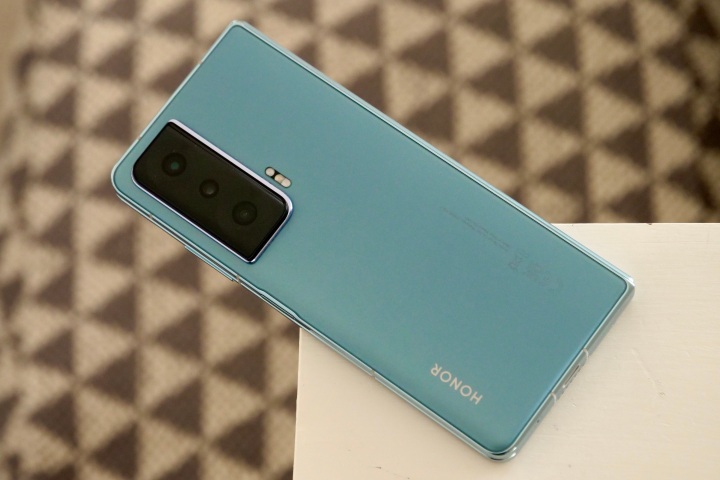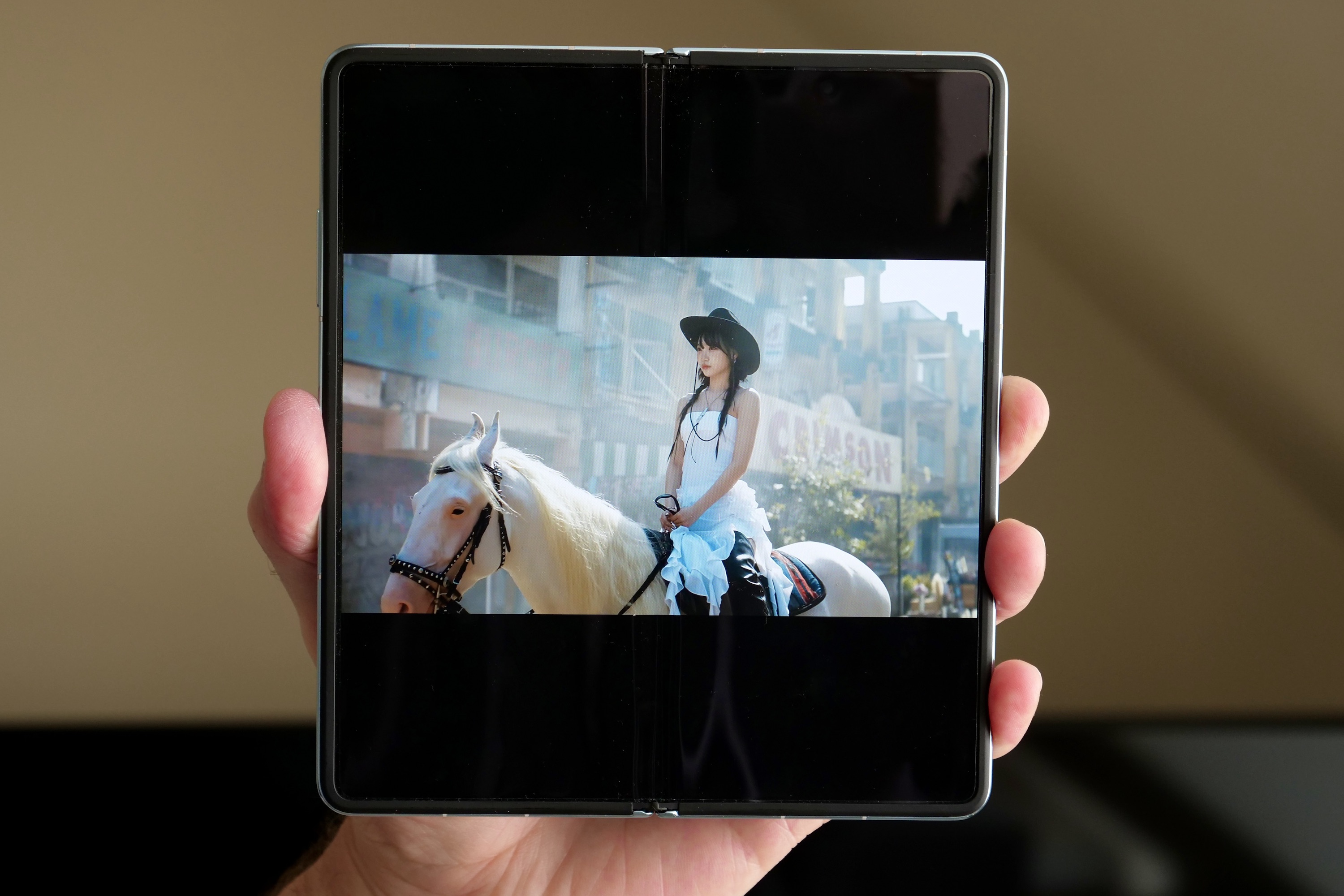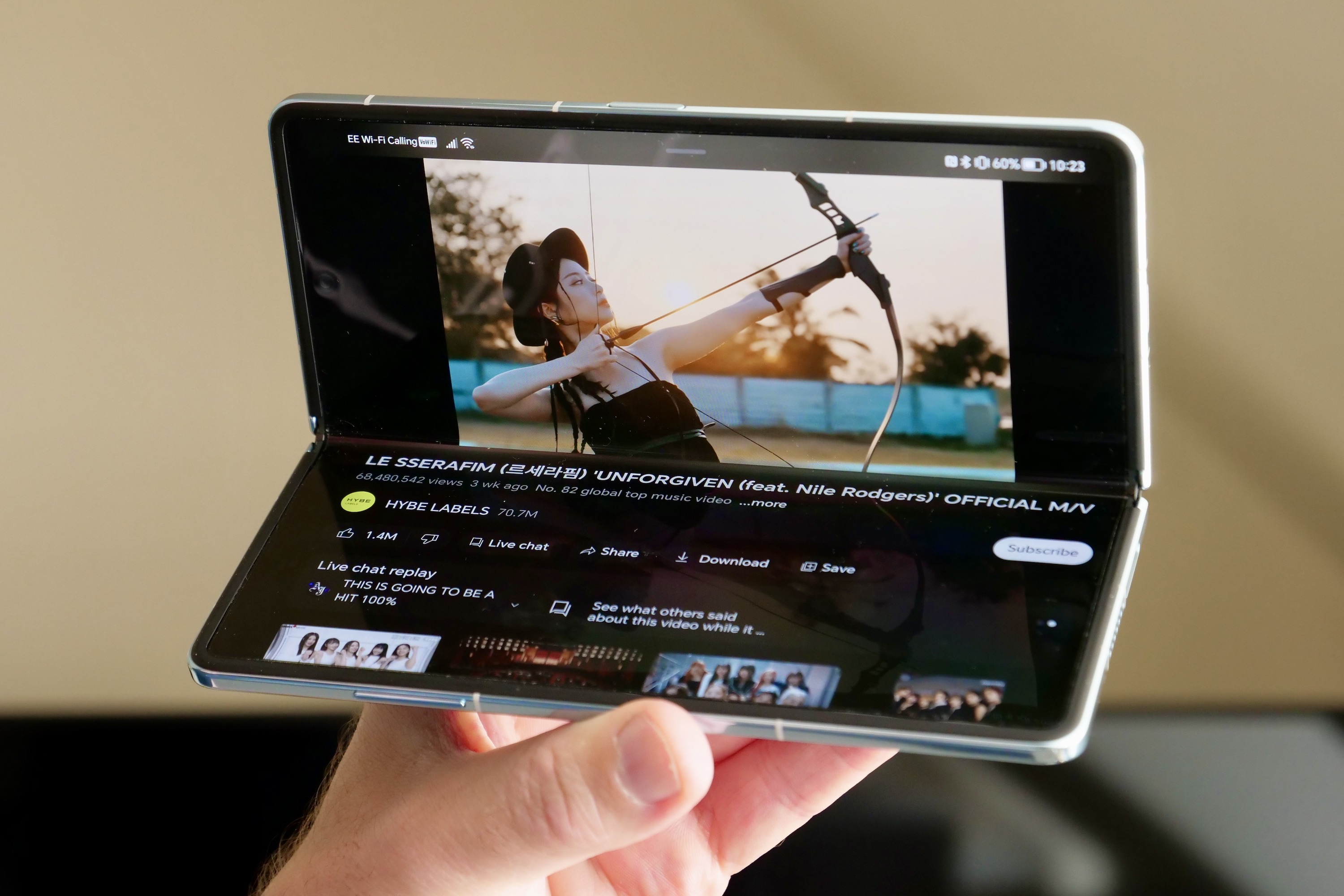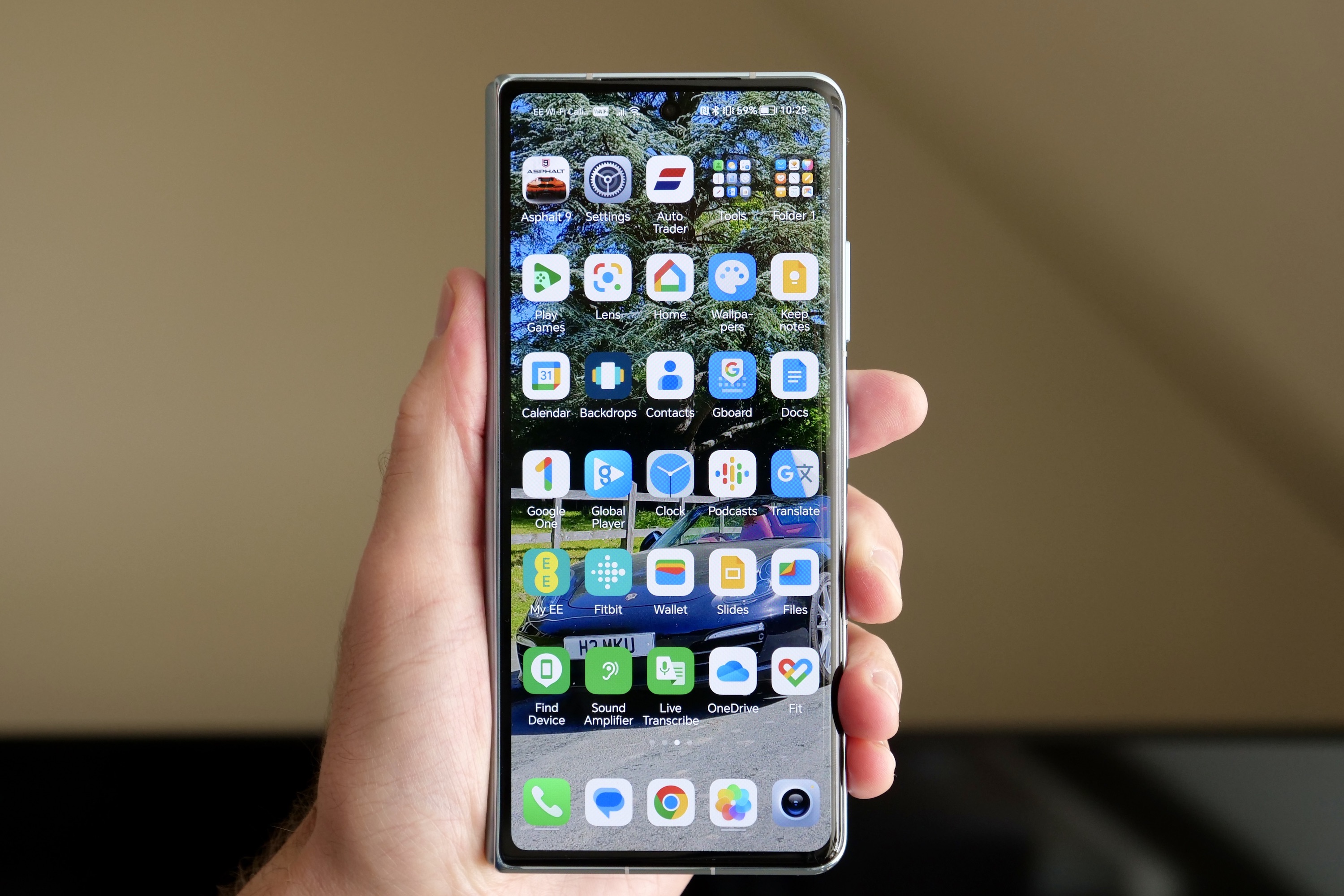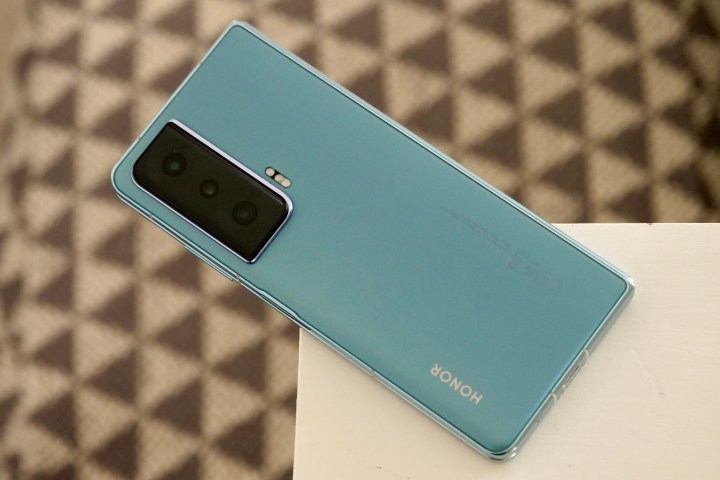
I’ve had a turbulent time with the Honor Magic Vs. It started out well when I first tried the phone in late 2022, but the early appeal waned when I got to grips with the software — and things soured even more when I tried the camera for our full review. Now, Honor has revealed the final price for the Magic Vs, and it’s substantially less than the Samsung Galaxy Z Fold 4, its closest rival.
It means that I need to tackle the Honor Magic Vs again to see if software updates have improved it, and if not, whether the lower price means its shortcomings are more easily forgiven.
Bringing the Magic back
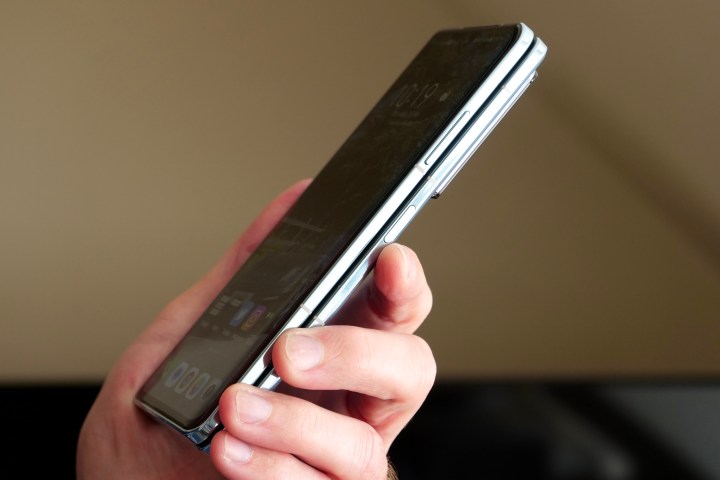
I reviewed the Honor Magic Vs in mid-March of this year, and at the time of this writing, it’s closing in on the end of May 2023 — a few weeks after Honor finally confirmed the U.K. price. It’s 1,399 British pounds (about $1,760), and that’s 200 pounds (about $245) cheaper than the Samsung Galaxy Z Fold 4. Therefore, it’s low enough to grab attention.
I reset the Magic Vs before using it this time, and after setting it up, a massive 5.5GB software update arrived — giving me hope plenty had changed inside. Well, it hasn’t. There’s still no app drawer, so all your apps (and the many preinstalled Honor apps) are spread across multiple home screens in a distinctly non-Android and very old-school iOS way.
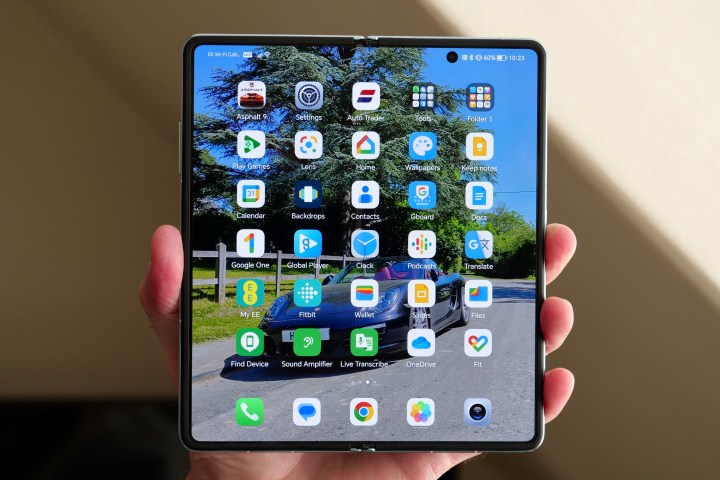
None of Android 13’s wallpaper and design aspects are there either. Worse is the app compatibility for the two screens, which falls well behind the Galaxy Z Fold 4 and hasn’t improved with the software update. Multitasking is also still hit-or-miss, but this isn’t specific to the Magic Vs. YouTube displays on the top of the half-folded screen system as it does on the Z Fold 4, but it’s a rather cluttered view, and Instagram doesn’t work in split-screen at all, as with other foldables.
Stability seems to have improved, and the little bugs I noticed when I reviewed the phone seem to have been squashed. There’s no doubt MagicOS runs smoothly and is responsive enough, and I’ll take these aspects as a win, but I’m not going to be too enthusiastic about software that simply runs in a normal way. MagicOS on the Magic Vs isn’t awful to use, but it’s anachronistic, shunning an app drawer and most of Google’s best Android 13 features that other manufacturers treat as standard.
No improvement in the camera
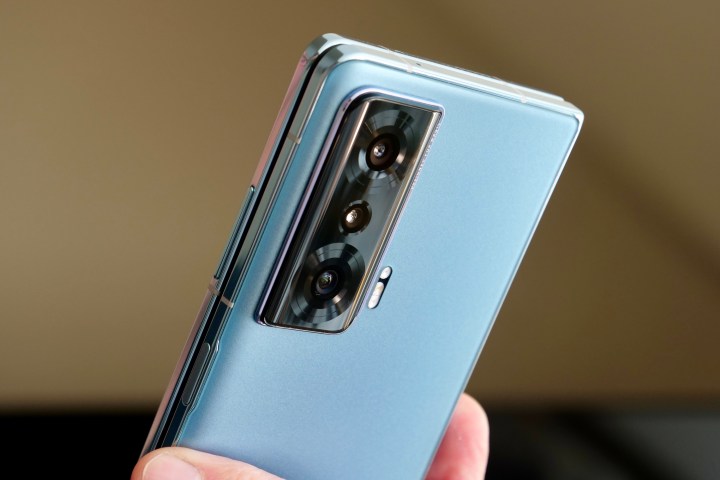
Following the gigantic software update, it was reasonable to expect Honor would have waved its wand over the camera, ready to improve the wide-angle camera’s performance in particular. I’ve taken a variety of images over the past week to see what’s new. The main camera is still the best here, especially when you get in quite close to your subject, as it shows pleasing natural colors and good detail.
It’s less successful other times, often washing blue skies out and introducing some odd smoothing artifacts too. With the AI mode activated, colors can become vivid and unnatural, and without it, they can be a little drab. Consistency isn’t its strong point, and it’s a bit of a lottery as to whether it’ll take a great photo or a mediocre one. Take a look at the gallery below, which compares the Magic Vs’ camera with the iPhone 14 Pro. It’s worth noting that I don’t think the iPhone’s photos are that great, but there’s a lot more detail, and the colors are far more natural.
The main camera doesn’t seem to have changed much, and unfortunately, neither has the wide-angle camera. Obviously, it’s the same disappointing 8-megapixel hardware, but nothing has been done to improve the quality. It’s still rubbish, with little detail, poor balance, and ugly, obvious digital meddling. I don’t have any evidence the camera has been improved since the last time I used the Honor Magic Vs, so it remains average at best.
Battery life is … worse?
It seems like the battery may not last as long as it did before the software update. Three hours of screen time during the day —apps, gaming, video, camera, and navigation included — sees the battery reduce to below 40% before bedtime, making two days of use a bit of a stretch if your use is consistent. During my review period, I recall it being far more likely that the phone would return two days of use, even with three hours of screen time (or a little more).
The only difference this time is I’ve been using the Magic Vs with the Google Pixel Watch, but this shouldn’t crush the battery life that much. It doesn’t on other devices, and I’m accustomed to being impressed by the Qualcomm Snapdragon 8+ Gen 1 processor’s efficiency. With moderate to light use, the battery will extend to two days, but push it hard and it’ll struggle.
I’ve done a lot of complaining about the Magic Vs, so is there anything good? The hardware is attractive, slim, fairly lightweight, and so far robust. It’s frustrating the phone doesn’t quite open flat, but I’m sure some people won’t even notice. Performance-wise, it’s snappy and reliable. The software isn’t intrusive and the selfie camera is pretty good. As a phone, it does the job, but when I move away from it, I won’t miss it like I did the Pixel 7a.
Honor — and you — can do better
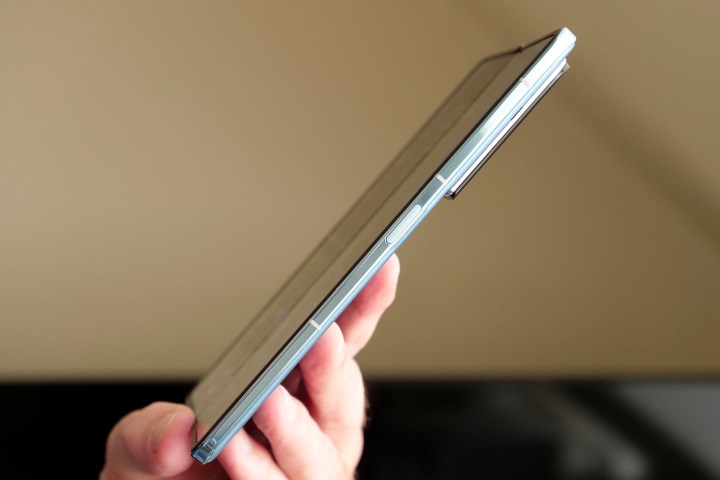
Several months have passed since the Honor Magic Vs first arrived, giving the brand plenty of time to refine what is, I have to assume, a flagship product. The trouble is, the Magic Vs doesn’t really feel like a flagship product. Some small improvements have been made and are noticeable, mostly around reliability and stability, but the camera and software are still behind the competition.
This leads me to the price. Yes, the Magic Vs is cheaper than the Galaxy Z Fold 4, but it’s still a really expensive phone, and you can do a lot better for the same money — or less. It’s just that the model you choose instead won’t fold. If that’s the only feature that matters, then the Magic Vs is the cheapest option, but I do think you’re being fished by the “low” price here.
I don’t hate the Magic Vs, but I know Honor can do better. What’s more, I know there are also much better phones for less money, if you don’t get caught up in the fact the Magic Vs folds up and then try to compare them. If you want a brilliant foldable phone experience, the Galaxy Z Fold 4 is still the one to buy. The Google Pixel Fold is one to watch as well, or take a look at the smaller Samsung Galaxy Z Flip 4. You’ll enjoy the long-term ownership experience more.
Editors’ Recommendations
Services Marketplace – Listings, Bookings & Reviews
